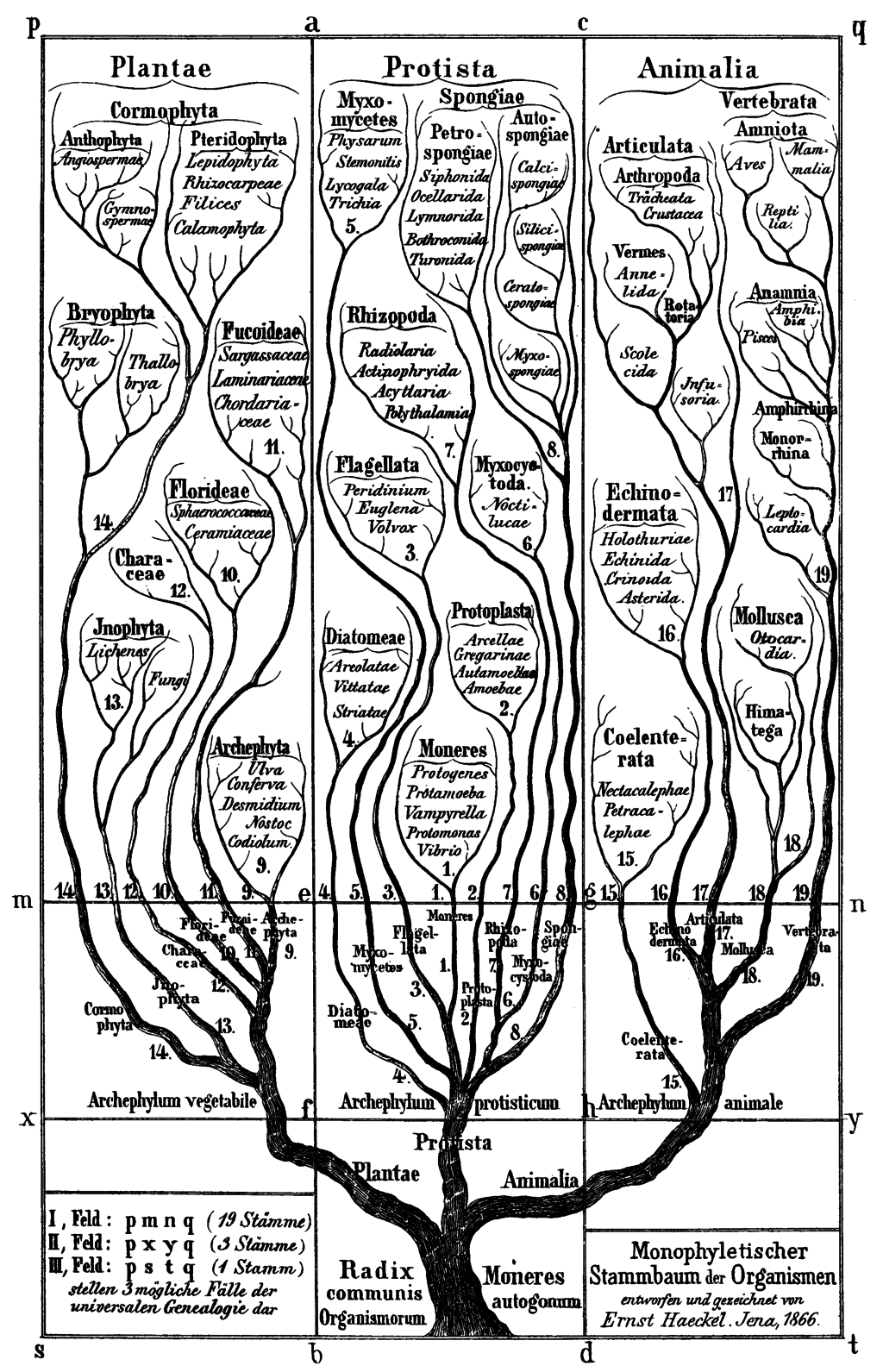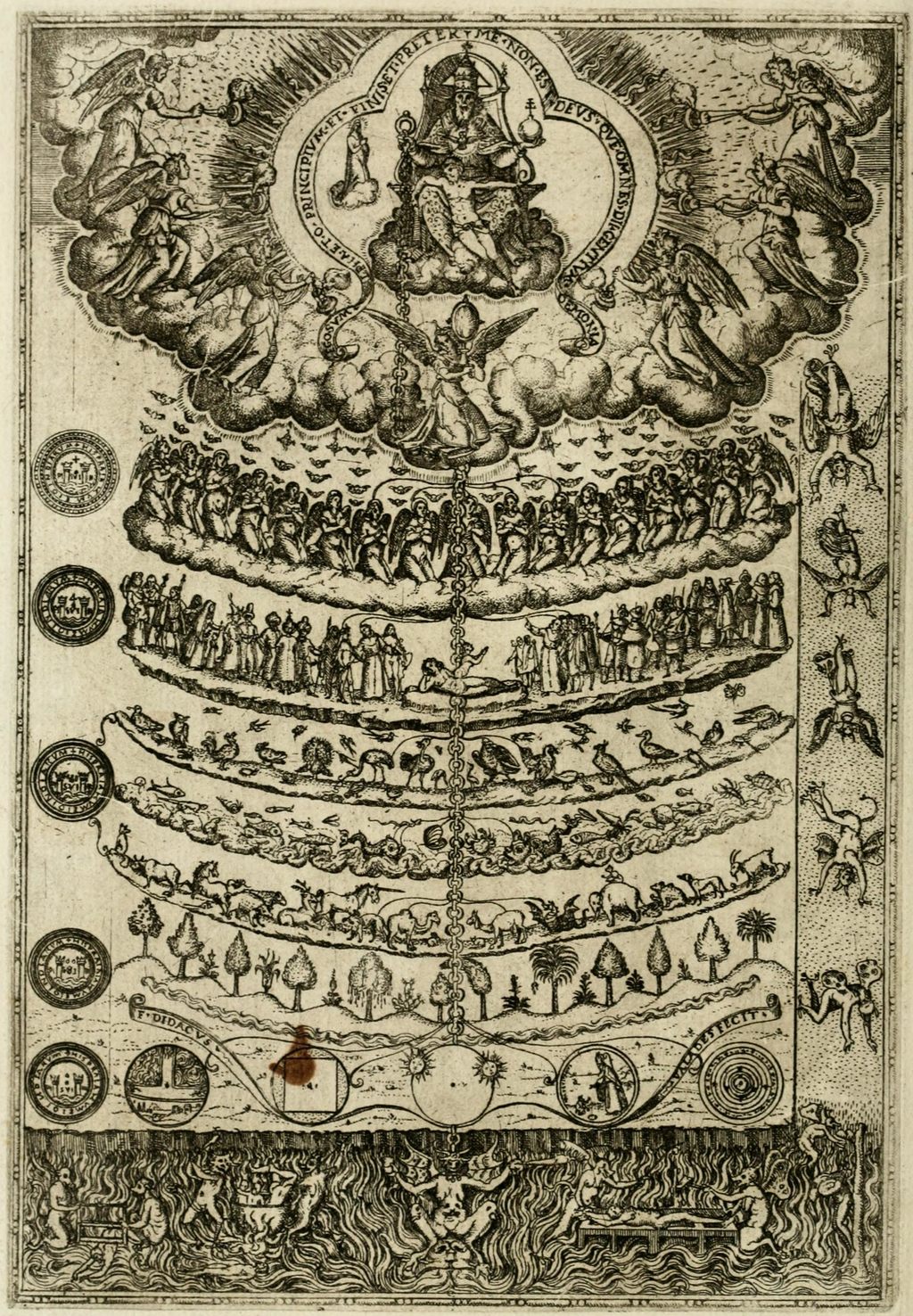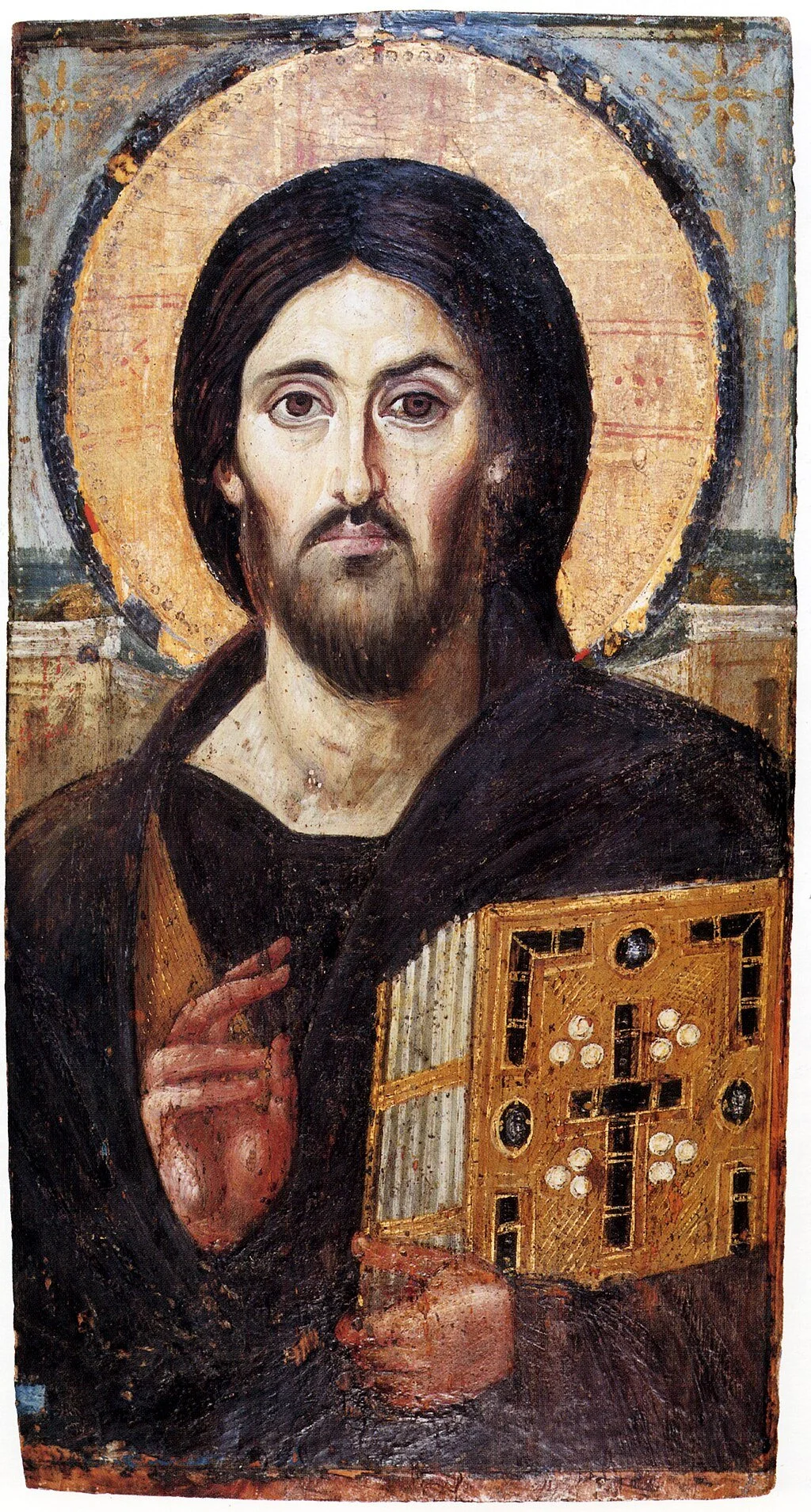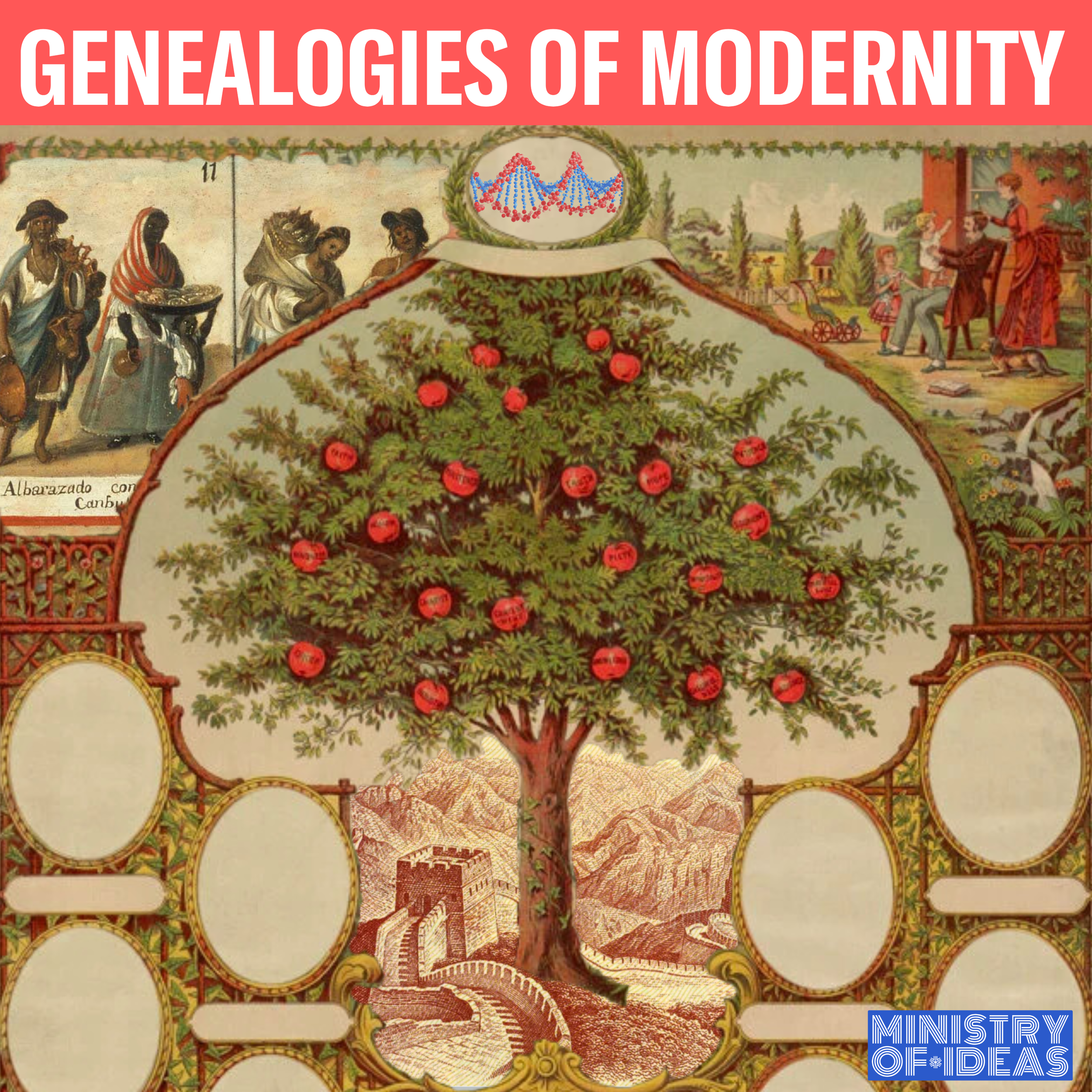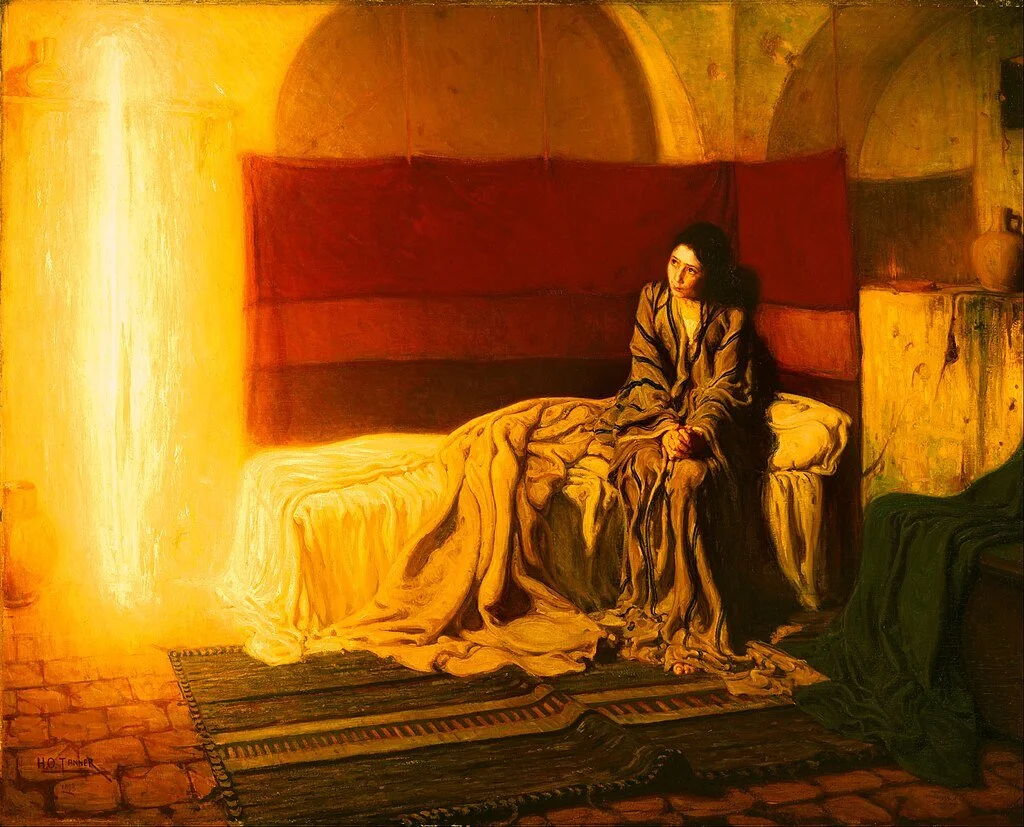The Genealogies of Modernity Journal
The Great Chain of Being, Part II
One path by which we might regain our sense of place in the universe lies in the way of modern evolutionary theory. The theory of evolution not only explains phenomena that the great chain of being couldn’t account for, but also has provided us with a new model by which we might orient ourselves in the world.
Julia Powell’s genealogy of the Great Chain of Being
The Great Chain of Being, Part I
The chain of being began in ancient philosophy, but it reached its fullest and most systematic expression in medieval Christendom. In the hands of medieval scholastics, the chain of being was personified.
Julia Powell’s genealogy of the Great Chain of Being
Pathways, January 2026
Each month we keep track of the different paths modern life is taking and how writers are keeping up. Here are some routes we recently found on our modern life.
Recovering Christian Visual Literacy, Part II
What would it mean for the Church to redeem, rather than merely adopt, digital media?
Arthur Aghajanian on Christian visual culture
Recovering Christian Visual Literacy, Part I
Where in the past, challenges for both artists and churches included scarcity, durability, and doctrinal clarity, today’s churches are challenged by excess, novelty, distraction, and the difficulty of sustaining contemplation. How does a sacred image rise above the noise? How can it function as an enduring, spiritually formative encounter as opposed to fleeting visual content?
Arthur Aghajanian on Christian visual culture
Best of 2025—and What We’re Looking Forward to in 2026
Genealogy of Modernity’s Best of 2025—And More to Come!
On Not Counting on the Katechon, Part II
“All the past incarnations of the katechon have resulted culturally in a progressive, step-by-step demystification of the nature of violence itself, bringing to the surface its mimetic and cyclic nature. Are we not at the point where the very discussion of the katechon involves an understanding of this nature and the actual unsustainability of violent solutions?”
Anthony Bartlett offers a genealogy of the katechon
On Not Counting on the Katechon, Part I
“The most significant recent embrace of the katechon comes from tech-billionaire student of Girard and Trump/Vance backer, Peter Thiel. The connection with Girard makes this latest iteration doubly provocative and in need of serious examination.”
Anthony Bartlett offers a genealogy of the katechon
Process Commodities: Modern Aesthetics and the Autonomy Imperative
“What makes the sketch’s autonomy fantastical is the reciprocal sense in which formalizing and circulating itself as the process of its production reconstitutes its process as a commodity—indeed, as the commodification of the resistance to the commodity’s reification.”
Daniel Fulton Cheung on the “autonomy imperative”
The Return of Enchantment: Relational Reality at the Edge of Modernity
What earlier ages described as communion or participation reappears in a new vocabulary of entanglement and interdependence… The underlying insight is familiar: the world is not a collection of discrete objects but a web of relationships, a reality that becomes understandable only through forms of participation.
Brian M. Ross on the compatibility of religion and science
Pathways, November 2025
Each month we keep track of the different paths modern life is taking and how writers are keeping up. Here are some routes we recently found on our modern life.
The Interaction Problem
Either the mysterious structures underpinning our rationality are arbitrary and misleading, or—somehow—they broadly work… We are forced to wager that there is something somehow connecting our thoughts with reality.
Kit Wilson on science, skepticism, and subjective experience
Our Modern Split Personality Disorder
“As the great phenomenologists and theoretical physicists of the mid-twentieth century saw it, then, science simply cannot deny ordinary human experience without ultimately undermining itself.”
Kit Wilson on science and reality
Abolition and Vigilante Justice, Part II
“HBO’s Watchmen ruthlessly unmasks the fantasy that whistleblowers alone will end police corruption.”
J. Laurence Cohen explores genealogies of vigilante justice, from American history to HBO’s Watchmen
Pathways, October 2025
Each month we keep track of the different paths modern life is taking and how writers are keeping up. Here are some routes we recently found on our modern life.
Abolition and Vigilante Justice, Part I
“What’s the difference between a masked cop and a vigilante?”
J. Laurence Cohen explores genealogies of vigilante justice, from American history to HBO’s Watchmen
René Girard, Modernity, Apocalypse, Part II
“Girardian revelation is a necessary addition to the genealogies of the modern, not in any sense of religion making a comeback to contest the secular, but in a sense internal to the secular itself. ”
Anthony Bartlett on René Girard
René Girard, Modernity, Apocalypse, Part I
“Girard’s generative anthropology rises from a discovery of foundational violence, and constantly illustrates a desperate contemporary need to somehow free ourselves from this violence.”
Anthony Bartlett on René Girard
Pathways, September 2025
Each month we keep track of the different paths modern life is taking and how writers are keeping up. Here are some routes we recently found on our modern life.
Worldpicture, Part III: The Cartesian Roots of Quantum Theory and Postmodernism
“We must recognize that the post-Cartesian reductive-materialist frameworks will never be sufficient to support a robust and expansive human flourishing.”
M. G. Scott on re-accessing metastructure




